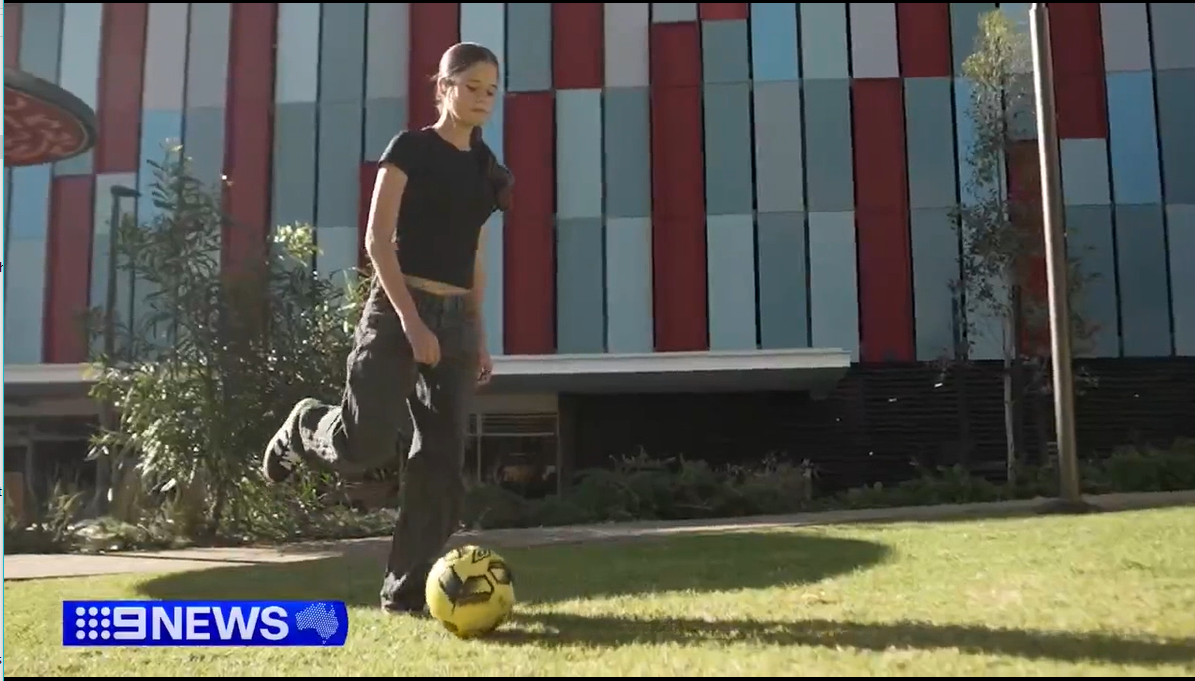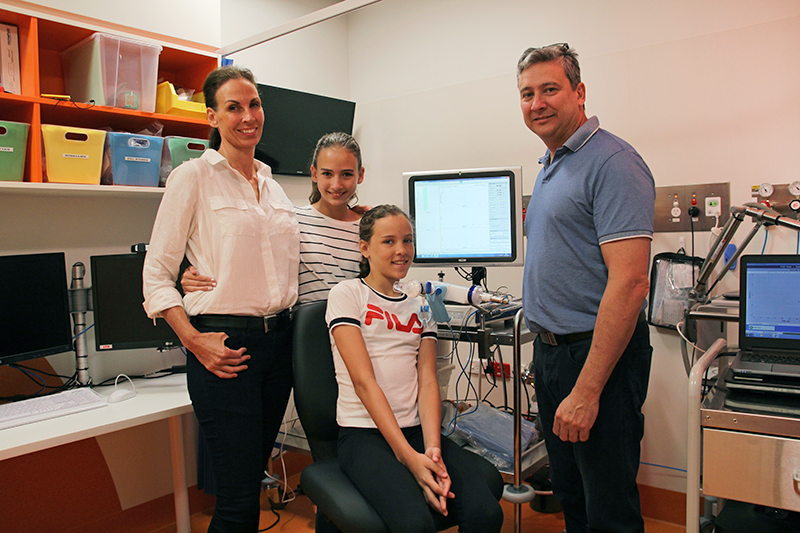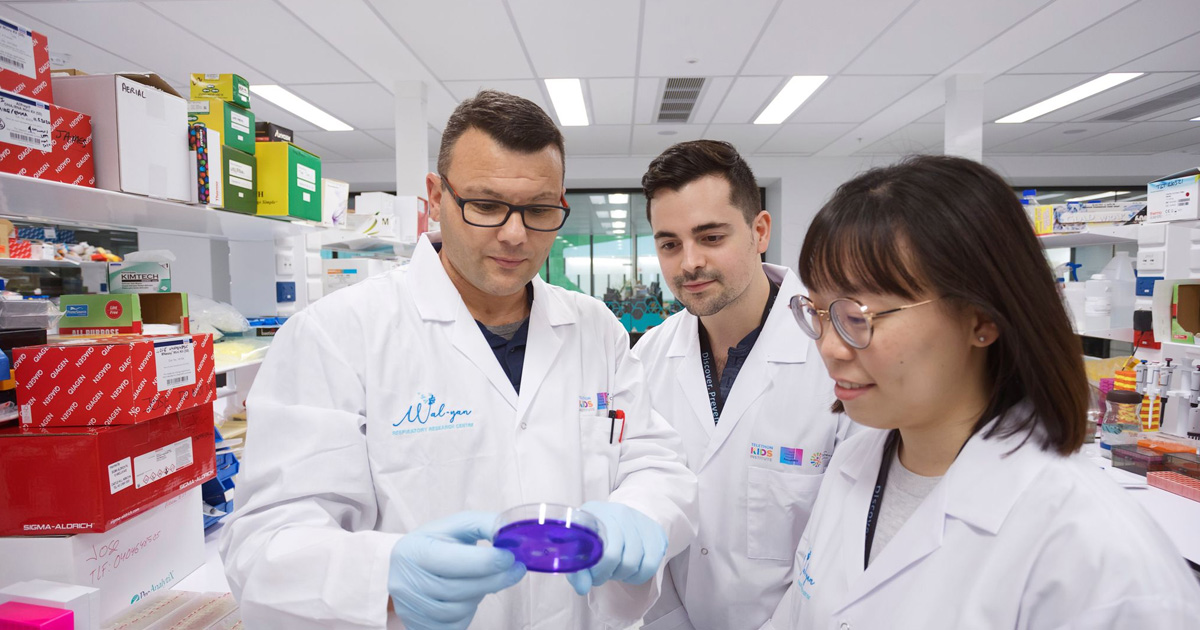Search
Research
Airway epithelial repair in health and disease: Orchestrator or simply a player?This review attempts to highlight migration-specific and cell-extracellular matrix (ECM) aspects of repair used by epithelial cells
Research
Virome assembly reveals draft genomes of native Pseudomonas phages isolated from a paediatric bronchoalveolar lavage sampleWe present lung virome data recovered through shotgun metagenomics in bronchoalveolar lavage fluid from an infant with cystic fibrosis, who tested positive for Stenotrophomonas maltophilia infection. Using a bioinformatic pipeline for virus characterization in shotgun metagenomic data, we identified five viral contigs representing Pseudomonas phages classified as Caudoviricetes.
Research
Value of serology in predicting Pseudomonas aeruginosa infection in young children with cystic fibrosiserology, predicting, Pseudomonas aeruginosa infection, young children, cystic fibrosis

News & Events
Promising results for new Western Australian-pioneered cystic fibrosis drugChildren with cystic fibrosis will be included in the next phase of a clinical trial of a promising new treatment pioneered in Western Australia aimed at boosting their immune responses to infections. Originally developed by researchers at The Kids Research Institute Australia and Perth Children’s Hospital.
Research
Evolution of pulmonary inflammation and nutritional status in infants and young children with cystic fibrosisImproved nutrition is the major proven benefit of newborn screening programmes for cystic fibrosis (CF) and is associated with better clinical outcomes.
Research
Distribution of Early Structural Lung Changes due to Cystic Fibrosis Detected with Chest Computed TomographyTo examine the distribution of early structural lung changes in clinically stable infants and young children with cystic fibrosis using chest computed...

News & Events
New drug therapy provides hope for kids with cystic fibrosisThe Kids Research Institute Australia spin-off company, Respirion, received $20 million in funding to develop a promising new therapy.

News & Events
New drug therapy provides hope for kids with cystic fibrosisThe family of two girls with cystic fibrosis are hopeful after The Kids Research Institute Australia spin-off company, Respirion, receives $20 million in funding to develop a promising new therapy.

News & Events
Cure4CF Grant a boost for innovative Cystic Fibrosis researchA $350,000 Cure4 Cystic Fibrosis grant is set to propel the Wal-yan Respiratory Research Centre’s Phage WA program forward, supercharging its fight against antimicrobial resistant (AMR) lung infections in people with Cystic Fibrosis (CF) using cutting-edge phage therapy.
Research
Multilocus Sequence Typing Reveals Extensive Genetic Diversity of the Emerging Fungal Pathogen Scedosporium aurantiacumScedosporium spp. are the second most prevalent filamentous fungi after Aspergillus spp. recovered from cystic fibrosis (CF) patients in various regions of the world. Although invasive infection is uncommon prior to lung transplantation, fungal colonization may be a risk factor for invasive disease with attendant high mortality post-transplantation. Abundant in the environment, Scedosporium aurantiacum has emerged as an important fungal pathogen in a range of clinical settings.
